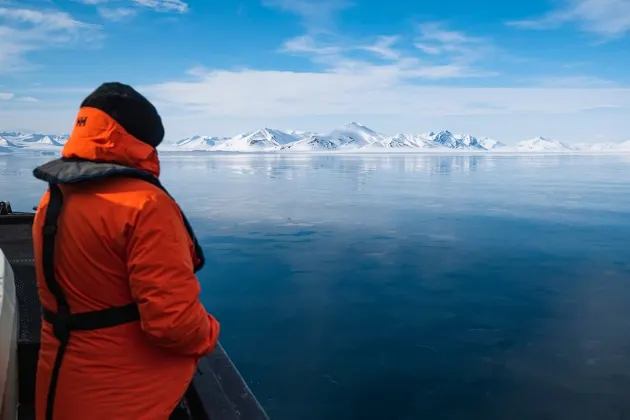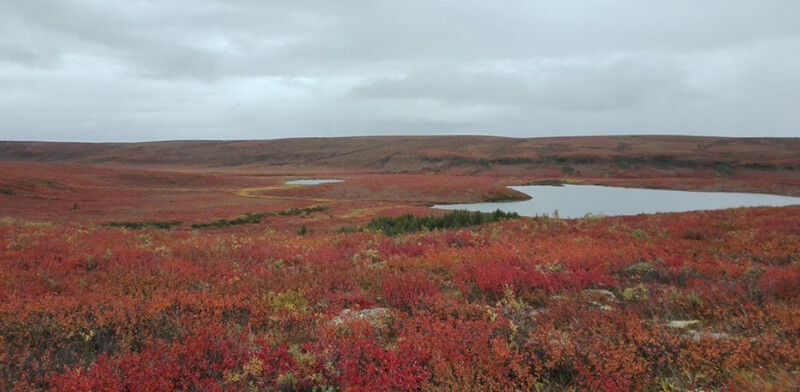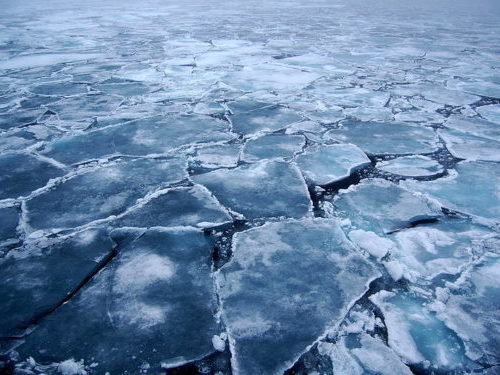We humans benefit from the oceans’ tremendous capacity to absorb greenhouse gases. Due to the low temperature of the water, the Arctic Ocean absorbs an especially large amount of CO2 in relation to its size.

Due in part to climate change, this effect will be less pronounced in the future. A new study released by Universität Hamburg’s Cluster of Excellence CLICCS shows how much CO2 is released into the atmosphere in the Arctic Ocean by the erosion of coastal permafrost.
The world’s oceans mitigate climate change by absorbing roughly 30% of anthropogenic greenhouse gases from the atmosphere. But that percentage is now being affected by the impacts of global warming, e.g. by the erosion of permafrost soils on the coasts of the Arctic Ocean, an aspect that substantially reduces the seawater’s ability to absorb CO2. Dr. David Nielsen and his team have now shown in climate models for the first time how significant this effect could be in the future. Their study has just been published in the journal Nature Climate Change.
According to the study, for every year and every degree Celsius the global temperature rises, the Arctic Ocean will absorb between one and two million metric tons less CO2 from the atmosphere than previously assumed. That amounts to one-tenth of the emissions produced by road traffic in Europe every year.
When stretches of coastland that have been frozen for millennia thaw and crumble, massive amounts of soil and sediment are released into the ocean. How these particles react to the seawater depends on their composition, but in all cases their organic components increase the water’s carbon content, reducing its ability to absorb CO2 from the air – by between 10 and 15 percent for the Inner Arctic Ocean, as the team calculated.
“We should be grateful that our oceans absorb a major percentage of our greenhouse gases,” says climate researcher Nielsen. “But this ecosystem service might not always continue to be as strong as it has been in the past. To determine whether or not we can keep counting on this effect in the future, we need to first understand the mechanisms of CO2 absorption in more detail.”
Nielsen’s study deepens our understanding of the influence of permafrost coastal erosion. As a result, this factor can be better reflected in future climate forecasts and carbon budgets. For example, the rate of erosion could double or even triple by 2100. Accordingly, the team analyzed various coastal erosion scenarios based on different levels of success for global climate protection initiatives.
- Nielsen DM, Chegini F, Maerz J, Brune S, Mathis M, Dobrynin M, Baehr J, Brovkin V, Ilyina T (2024): Reduced Arctic Ocean CO2 uptake due to coastal permafrost erosion; Nature Climate Change; https://www.nature.com/articles/s41558-024-02074-3




As we look towards the future, it’s essential to understand that the Arctic Ocean’s reduced capacity for CO2 absorption could have significant effects on global carbon cycles. We should prioritize research and innovative technologies that enhance our understanding of these changes.
With projections indicating that the Arctic Ocean will absorb less CO2 in the future, it’s important for communities and governments alike to engage in dialogue about sustainable practices that can help mitigate these changes.
A stark reminder of how climate change alters natural processes.
While it’s a compelling idea to think that the Arctic Ocean might absorb less CO2 in the future, I must respectfully disagree with the assumption that this will lead to significant positive changes. The reality is that the complex interactions within our climate system are far more nuanced, and simply expecting a decrease in CO2 absorption oversimplifies the broader environmental challenges we face.
The prospect of the Arctic Ocean’s diminished ability to absorb CO2 invites us to pause and reflect. It serves as a gentle reminder of the impermanence of our natural world and the urgent need for collective mindfulness in addressing climate change.